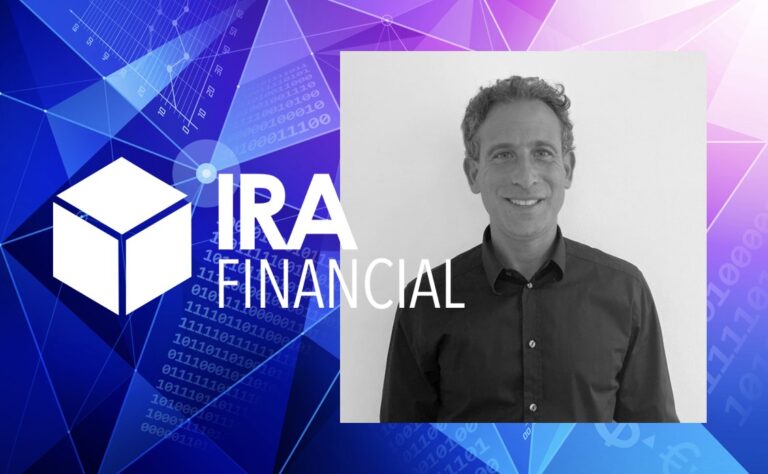Tax attorney Leaves Law, creates largest company for self-directed retirement plans
When a former big firm tax attorney discovered that the Internal Revenue Service (IRS) allows investors to use retirement money for alternative asset investments, such as real estate, tax liens and now cryptocurrency, he started the largest fintech company for self-directed retirement plans.
A Time to Disrupt the $30 Trillion Retirement Industry
After the stock market crash of 2008, investors became less confident investing in stocks, bonds and other traditional investments. It was around this time that Adam Bergman, a ninth year tax associate in New York, was assigned to a client interested in making hedge fund investments with his retirement money.
Bergman was tasked with determining if such an investment an investment could be made, but he had his doubts. After earnestly delving into law books, he discovered something known as the self-directed retirement plan. Bergman had a Masters in Tax Law and was working at one of the largest law firms in the country, yet he had never heard of self-directed retirement products. More surprisingly, the senior tax lawyers at his law firm were equally unaware of these retirement plans.
“I asked my colleagues [about self-directed retirement products] and researched and was surprised that there was no in-depth or credible information available to help people navigate IRS rules regarding retirement accounts and alternative assets,” said Bergman.
Not long after the 2008 financial crisis, Bergman began researching the opportunity to start a fintech (financial technology) retirement company to help educate individuals about the IRS approved alternative asset investments they can make with their retirement funds.
The Eighth Wonder of the World
“As a tax attorney, I was always a big believer of the retirement industry,” explained Bergman. “It is founded on the principles of tax-deferral and compounding return.”
Compounding return, Bergman explains, was classified by Warren Buffet and Albert Einstein as the eighth wonder of the world.
As a student of the tax code, Bergman was surprised that very few people knew the IRS gave them the ability to make alternative asset investments, like real estate and precious metals, with their IRA or 401(k) funds, considering this had been in the tax code since IRAs were created in the 1970s.
It’s in the Tax Code – Know Your Rights
Bergman discovered that the IRS allowed investors to make a world of investments with their IRA or 401(k) plan.
“In fact, the IRS doesn’t say what you can invest in with your funds,” says Bergman, “only what you can’t.”
Essentially, there are three things investors cannot do with their retirement funds. They cannot use their IRA to purchase life insurance (although this is permitted with a 401(k) qualified retirement plan) and they cannot use funds to purchase collectibles, such as art and stamps.
A more detailed exclusion by the IRS is detailed in IRC section 4975, which involves any transaction that personally benefits the IRA owner and any of his/her lineal descendants (anyone up and down the IRA holder’s family tree), and the IRA holder’s spouse, either directly or indirectly. The IRS disallows these transactions because it is viewed as inherently suspicious.
Why Wall Street Wants to Keep You in the Dark
Individuals who have used their retirement funds to invest in traditional assets may wonder why they had never heard of self-directed retirement products, such as the Self-Directed IRA and Solo 401(k). If the IRS has allowed these transactions for over four decades, therefore one would assume self-directed retirement plans would be well known to all.
According to Bergman, the self-directed retirement “secret” is largely a result of large banks and financial institutions.
“There are 50 million IRAs. Close to 95-98 percent are invested in traditional assets controlled by all the largest banks and financial institutions in the world,” says Bergman. “They make money when you buy their products.”
Banks and financial institutions sell stocks, bonds, CDs and other traditional investments. What they don’t sell is real estate, cryptocurrency, precious metals, or any of the alternative assets that the IRS has allowed all us to purchase with our retirement money.
Bergman explains that 60 percent of financial organizations are tied into cash that is held within the company. If a client were to remove his/her money from the organization and place it into real estate, the bank/financial institution would, ultimately, lose revenue.
Best Route for Alternative Asset Investing
Isaac Rodriquez, a former police officer, began using his 457 retirement plan to make real estate investments after learning he could from a friend who worked at IRA Financial Group.
“[My friend] advised me that being a realtor would give me a tremendous advantage to invest in what I know,” says Rodriquez. “At first I didn’t believe him because I had never heard of using my retirement money to invest other than stocks.”
Today, Rodriquez is a landlord who owns two condos and rents them out for a steady stream of income.
“If it was not for me being able to use my retirement funds to purchase real estate, I would not be a landlord today,” Rodriquez says.
By using his retirement funds to make real estate investments, he can earn income and generate capital gains tax-free.
“It is great that we can use our retirement funds to do alternative investments,” says Rodriquez. “It’s a no brainer. [The IRS] allow you to use your money in what you know and trust.”
The Start of IRA Financial
“It has been a continuous struggle to educate people,” says Bergman, “because a lot of times, people are so shocked that they can do this.”
This is a struggle Bergman intends to abate through education. He began IRA Financial Group back in 2010, and later established its sister company, IRA Financial Trust in 2015. His passion for the industry is not simply business oriented; he is equally passionate about educating people on the power of tax-deferral, alternative assets and the options that the IRS provides everyone.
In his pursuit to educate the general public, Bergman has authored seven books on self-directed retirement plans, including Solo 401(k) in a Nutshell, Turning Retirement Funds into Startup Dreams, and In God we Trust – In Roth we Prosper.
Bergman’s companies, IRA Financial Group and IRA Financial Trust have become the fastest growing provider of self-directed retirement plans in the nation. IRA Financial Group has helped over 16,000 clients invest over $4.5 billion in alternative asset investments. IRA Financial is also the first IRA custodian to create an app that allows clients to establish and fund their account, and make investments on their phone or desktop.
With a solution in hand, Bergman is just getting started.
“The big issue with the self-directed retirement industry is education,” he says. “Once people know about it, they are excited to make alternative asset investments because they get to invest in assets they know and trust.”











